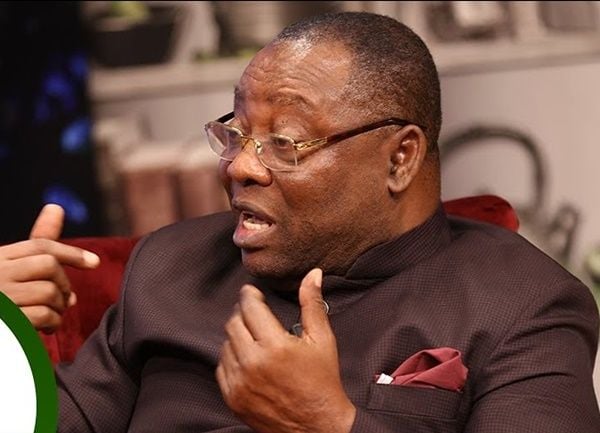Sam Pee Yalley, the President of the Professionals Forum of the National Democratic Congress (NDC), has launched a scathing critique of former Vice President Dr. Mahamudu Bawumia’s recent plea to the current government to reinstate public sector employees who were dismissed. Yalley’s central argument revolves around Bawumia’s own inaction during his eight-year tenure as Vice President. He questions the sincerity and validity of Bawumia’s appeal, highlighting the apparent contradiction between his current concern for the dismissed workers and his failure to address their employment needs while in a position of power. Yalley characterizes Bawumia’s pronouncements as a mix of legitimate opinions and politically motivated rhetoric, suggesting that the former Vice President’s current stance is driven more by political expediency than genuine concern for the affected individuals.
Yalley’s critique zeroes in on the perceived hypocrisy of Bawumia’s appeal. He contends that Bawumia’s failure to advocate for the employment of these individuals during his time in office undermines his current call for their reinstatement. The core of Yalley’s argument rests on the principle of consistency and accountability. He posits that if Bawumia genuinely believed these individuals deserved employment, he should have championed their cause while serving as Vice President. His current appeal, therefore, appears opportunistic and lacks the moral weight it would carry had he demonstrated similar concern during his own time in government. This perceived lack of consistency weakens Bawumia’s position and opens him up to accusations of political maneuvering.
Yalley dismisses the notion that Bawumia’s appeal, regardless of its reception, holds any merit. He emphasizes that the former Vice President’s failure to lobby for these individuals’ employment within his own administration disqualifies him from making such demands on the current government. Yalley draws a clear line between advocating for employment while in power and making appeals after leaving office. He argues that the former carries significantly more weight and legitimacy, while the latter can be interpreted as an attempt to score political points or undermine the current administration. This distinction, for Yalley, is crucial in assessing the sincerity and validity of Bawumia’s plea.
Furthermore, Yalley addresses the argument linking the NDC’s proposed 24-hour economy policy to an obligation to create immediate employment opportunities. He rejects the idea that external pressures should dictate the government’s hiring decisions. Yalley asserts the NDC’s autonomy in determining its employment strategies and emphasizes that the 24-hour economy policy does not automatically translate into a mandate to hire individuals based on external demands. He underscores the government’s right to manage its affairs and implement policies according to its own timeline and priorities. This assertion reinforces the NDC’s commitment to maintaining control over its policy implementation and resisting external pressures that might compromise its strategic approach.
Yalley’s response underscores a broader political dynamic: the scrutiny of past actions and their implications for current pronouncements. He highlights the importance of consistency in political discourse and the potential consequences of perceived hypocrisy. By questioning Bawumia’s motivations and emphasizing his past inaction, Yalley seeks to undermine the credibility of Bawumia’s appeal. This tactic is often employed in political debates to challenge the legitimacy of an opponent’s arguments and cast doubt on their sincerity. It underscores the significance of past performance and its influence on public perception of current political positions.
In essence, Yalley’s critique centers on the perceived disconnect between Bawumia’s words and actions. He argues that the former Vice President’s plea lacks credibility because it wasn’t accompanied by similar efforts during his time in office. This perceived inconsistency, according to Yalley, exposes the political undertones of Bawumia’s appeal and weakens its moral foundation. By highlighting this discrepancy, Yalley aims to discredit Bawumia’s position and reinforce the NDC’s autonomy in managing its own policies and priorities. This exchange reflects the ongoing political discourse and the importance of accountability and consistency in maintaining public trust.


